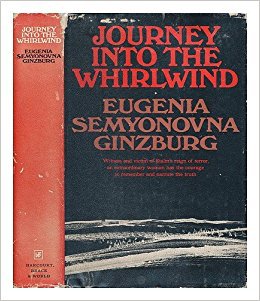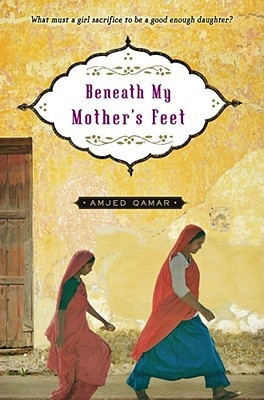
‘Journey Into the Whirlwind’ by Eugenia Semyonovna Ginzburg
First published in April 2014.
Eugenia Ginzburg’s Into the Whirlwind is a ‘highly detailed first-hand account of one woman’s life and imprisonment in the Soviet Union during the rule of Stalin in the 1930s’. It is the first of her two volumes of memoirs, which was smuggled out of Russia, and was ‘later sold in many different languages’. It was not published in Ginzburg’s native Russia until 1990, and is about to be reprinted by Persephone, with a translation by Paul Stevenson and Manya Hararit.
Ginzburg was a history teacher, and belonged to the Communist Party. However, she was expelled from its membership in 1937, and was sent to a gulag in the far east of Russia, where she consequently lived as a prisoner for eighteen years. In writing her memoirs, she felt that ‘it was her duty to bear witness and trained her extraordinary memory to record everything… What comes across in reading Into the Whirlwind is not merely the senseless brutality and waste of the regime, but the overwhelming strength of the human spirit’.
Into the Whirlwind has been split into two parts and fifty seven chapters in all. Ginzburg has opened her account with the murder of early Bolshevik leader Kirov. She is summoned, along with around forty other workers, to go to factories around Russia and inform them of what has happened. She is told that ‘the murderer was a communist’, which filled her with a ‘presentiment of terrible misfortune’. It provides a foreshadowing of awful events to come for Ginzburg. When a man whom she worked with, Elvov, is arrested by the party, a whirlwind of events begins to spiral for her: ‘I had not denounced Elvov as a purveyor of Trotskyist contraband… I had not, even once, attacked him at a public meeting’. She says: ‘1935 was a frightful year for me. My nerves were at breaking point, and I was obsessed with thoughts of suicide’. As their investigations into her progressed, Ginzburg writes: ‘The snowball was rolling downhill, growing disastrously and threatening to smother me’.
Throughout, Ginzburg presents herself as such a strong woman, writing that ‘in those days no power on earth could have made me join in the orgy of ‘confessions’ and ‘penitence’ which was just beginning’. She writes, quite matter-of-factly, that ‘human beings can get used to anything, even the most frightful evils’. From the very first page, her account is fascinating. It is astonishing to think that this entire book was memorised, which is such an incredible feat. Into the Whirlwind is such a brave book to have written, and reliving some of the things within it must have been nothing short of horrific – leaving her family for the last time, for example, after being arrested under the guise of the party wanting to question her about Elvov. The entirety has such an honest feel to it, and it is certainly another fitting addition to the Persephone list.
Quite an extensive section of notes which explain who some of those affiliated with the party were, as well as political terms and party details, has been included, along with an informative afterword written by Sir Rodric Braithwaite. Into the Whirlwind is such an important book, and one which should be read by everyone.
Purchase from The Book Depository
Advertisements Share this:




